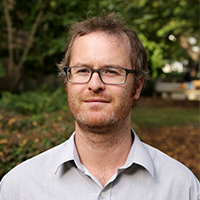The full length interview with Helena Norberg-Hodge from the upcoming documentary A Simpler Way: Crisis as Opportunity.
Support the full film at: http://igg.me/at/asimplerway/x/7867973.
By Samuel Alexander, originally published by The Simpler Way
September 2, 2015

The full length interview with Helena Norberg-Hodge from the upcoming documentary A Simpler Way: Crisis as Opportunity.
Support the full film at: http://igg.me/at/asimplerway/x/7867973.

Over the last ten years Dr Samuel Alexander has been a lecturer and researcher at the University of Melbourne, Australia, teaching a course called ‘Consumerism and the Growth Economy: Critical Interdisciplinary Perspectives’ as part of the Master of Environment. He has also been a Research Fellow with the Melbourne Sustainable Society Institute and is currently co-Director of the Simplicity Institute.
Alexander’s interdisciplinary research focuses on degrowth, permaculture, voluntary simplicity, ‘grassroots’ theories of transition, and the relationship between culture and political economy. His current research is exploring the aesthetics of degrowth and energy descent futures.
His books include Degrowth in the Suburbs: A Radical Urban Imaginary (2019, co-authored with Brendan Gleeson); Carbon Civilisation and the Energy Descent Future (2018, co-authored with Josh Floyd); Art Against Empire: Toward an Aesthetics of Degrowth (2017); Just Enough is Plenty: Thoreau’s Alternative Economics (2016); Deface the Currency: The Lost Dialogues of Diogenes (2016); Prosperous Descent: Crisis as Opportunity in an Age of Limits (2015); Sufficiency Economy: Enough, for Everyone, Forever (2015); and Entropia: Life Beyond Industrial Civilisation (2013); he is also editor of Voluntary Simplicity: The Poetic Alternative to Consumer Culture (2009) and co-editor of Simple Living in History: Pioneers of the Deep Future (2014). In 2016 he also released a documentary called A Simpler Way: Crisis as Opportunity, co-produced with Jordan Osmond of Happen Films. Alexander blogs at www.simplicitycollective.com.
Tags: economics of happiness, new economy, The Simpler Way
By Rachel Ainsworth, Daniel Hoyer, Resilience.org
Many argue that we are experiencing a global polycrisis right now, which not only makes revolutions more likely to arise as these stresses grow, but also more likely to spread to other regions when they do occur.
January 13, 2025
By Kurt Cobb, Resource Insights
A long-running elevator outage at my favorite cinema lead me to find out about America’s “elevator crisis.” It’s a symptom of our infrastructure predicament.
January 12, 2025
By Nate Hagens, The Great Simplification
In today’s conversation, Nate is joined by professor of psychology and cognitive scientist John Vervaeke to discuss the state of ‘the meaning crisis’, including the social and cultural contexts that have fostered such pervasive loss of connection and purpose.
January 9, 2025

